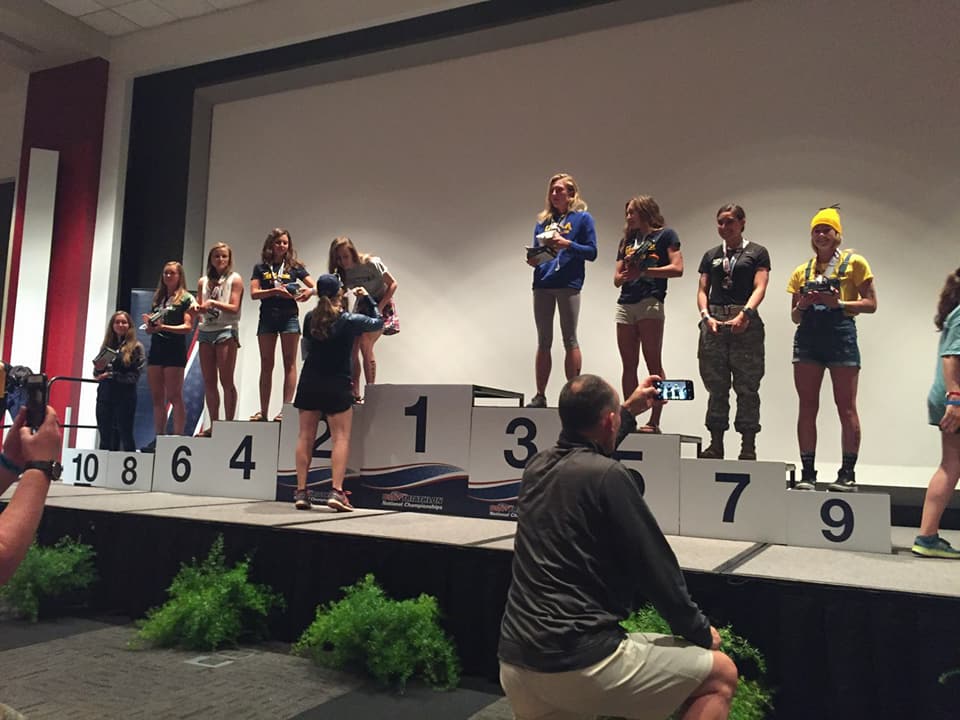I remember the pain. It knocks the wind out of you. One wrong flinch will have you doubled over, gasping, vision blurred. The wind is tacks across your skin. Cold leaves you breathless, immobile. Clothing is barbed wire. It took a year to be diagnosed. Here is everything I wish I knew when I was labeled with complex regional pain syndrome/reflex sympathetic dystrophy, but had no one to tell me.
1. Your best days are not behind you.
I was a competitive collegiate triathlete, finally having my big break. I podiumed every race the fall season, qualified for the NCAA championship as a club athlete, even as my CRPS symptoms were beginning. I carried an armful of trophies from my conference championship, but my teammates carried me out. I could no longer walk. I was a pre-med student at Georgetown University, often notching semesters of all-academic honors. And very suddenly, it all vanished. Where I once could reach out and grab my dreams, I now swatted at dust and smoke – nothing.
I felt condemned to an eternity of that feeling with my CRPS diagnosis. I remember going home and doing two things: crying on my mother’s shoulder, and Googling athletes with CRPS. I found a cyclist and hope sprang, only to have it come crashing back. She was a para-athlete; she had her legs amputated to combat her CRPS. I was not upset because this was my fate, but more so because it couldn’t be. I couldn’t have my CRPS sites amputated; it ran down my spine and side and abdomen into my leg. Every night, I fell asleep wishing I could just gnaw off my leg. It felt like dying, suffocating flesh just hanging off my torso.
I feared I was doomed to misery, regardless of anything I could do. So I decided, if I was going to be miserable and in pain no matter what, I was going to try to get everything back that CRPS had taken from me. I would never forgive myself for not trying. After all, I had absolutely nothing left to lose at that point. There was no game plan for this, no example to follow, so I threw everything into it.
Very few people who saw me running, leading the national championship with a smile slapped across my face knew everything hiding behind that smile. My ultimate silver medal was beyond anything even healthy, pre-CRPS me could have ever imagined. The irony that a girl who had just accepted she would never run again ended up dropping the fastest run split in the nation was not lost on me.
I did finally make it to my NCAA championship, and I graduated from Georgetown. CRPS does not mean your best days are behind you. Something truly amazing could be waiting just around the corner. Hold on to hope. Be true to yourself.

2. There is no right or wrong way to have CRPS.
CRPS is annoying. It is fickle, can vary vastly in its severity and manifestations from minute to minute, inch of skin to inch of skin. Different people have different symptoms and find relief from different courses of action. With a disease with no certain diagnostic procedure, often with few or no visible hallmarks and with an unknown cause, no one can tell you that you are right or wrong. Don’t let anyone gaslight you into thinking that you aren’t experiencing what you’re experiencing or that it isn’t significant.
More importantly, don’t gaslight yourself. CRPS is at the top of the McGill Pain Scale for a reason. Simply existing for us takes resilience and effort beyond what life will ever require of most people. And yes, this is exhausting. You are allowed to be exhausted. You are allowed to be anxious. You are allowed to be depressed and isolated and lonely. You are allowed to be, but you are not sentenced to be. You are allowed to not be able to do things. You are allowed to ask for help. You are allowed to be kind to yourself.
An online support group I am part of once addressed the topic of CRPS being nicknamed “The Suicide Disease.” One member berated the use of the nickname, saying it was simply used by people seeking attention. For me, the nickname was very real and was the final sign to me that my undiagnosed condition was intolerable, unlivable. Every day, I woke up feeling suicidal. My physical pain was immeasurable, my emotional and mental pain greater yet. For me, the phrase is an accurate summation of the toll CRPS takes on my life, and I am glad the other woman didn’t share in my experience.
Never let anyone tell you how to experience CRPS. You may feel this disease has too much control over your life already. Own your own narrative; do not allow someone else to dictate it for you. This is one way you can get even a tiny bit of power back over CRPS.

3. It’s an adventure.
Every day, every minute can be wildly different from what you wanted or what you planned for. This still makes my pre-existing anxiety skyrocket, but it helps to treat it like an adventure. How boring would life be if we always knew what we were getting? It may stink, but it certainly keeps life interesting and forces you to stay on your toes. Be flexible with yourself. Bailing on plans isn’t a disappointment. I would get so, so emotional if my CRPS flared and I couldn’t complete the workout I had allotted myself. But it would be so easy to just wake up every day and do my workout without any hitch. How boring! Give me obstacles, give me hurdles, really test me.
Standing on a podium at a national championship was beyond any dream I had envisioned for myself. In all honesty, though, it was the battle to get there that I value most. Everyone could see the medal hanging around my neck, tears in my eyes, but no one saw all the tears that fell on my way to get there. The tears that ran down my face faster than I ran down the National Mall late at night, not necessarily chasing any dream, but rather frantically racing to escape a frozen, immobile life.
CRPS will try you, it will test you. It will change the story of your life in some capacity or another, but it’s sure gonna make for a helluva story. Every day, your story is truly something extraordinary.

